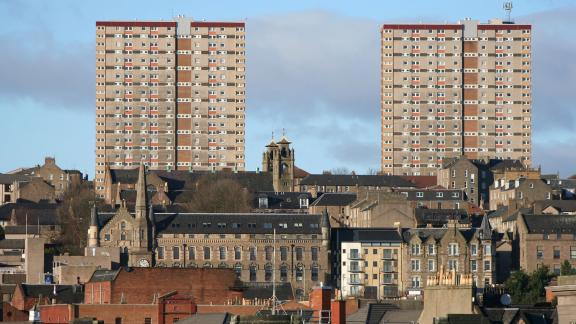Reaching out to 7 million patients on ‘hidden’ waiting list requires a generational change

A generational change in how we treat patients in England is needed if the NHS is to address spiralling waiting lists and ensure the ‘missing’ 7 million patients who are not on the official waiting list are to get the care they need.
A new report published by the NHS Confederation warns that waiting lists have grown more rapidly in more deprived areas during the pandemic, with marginalised groups likely to make up many of the missing 7 million patients who would have been expected to have come forward for treatment had it not been for the COVID pandemic.
New analysis conducted for the report identifies increases in admissions in areas of less deprivation for specialties such as trauma and orthopaedics and ear, nose and throat. In contrast, the report finds that there have been increases in waiting list numbers associated with areas of greater deprivation, especially in neurology, general surgery and dermatology. Overall levels of waiting per head of population are associated with areas of greater deprivation.
The NHS is expecting a ‘bounce back’ in care, with the health and social care secretary warning the waiting list could spiral to 13 million unless urgent action is taken. The recent spending review settlement for the NHS provided an extra £15.8 billion over three years, with most of that funding - £8 billion – going towards dealing with the care backlog. The NHS Confederation and other bodies have warned that the extra funding is welcome and important but it falls short of what is required.
The NHS Confederation warns that the challenge of dealing with the backlog will require the NHS to grow the backlog in the next few months to make sure local services identify all patients that need care. Many parts of the country are now proactively reaching out to the most deprived and marginalised groups in their local communities who they know have not been coming forward during the last 18 months or have not traditionally accessed healthcare services. The NHS has demonstrated significant success in this approach with the COVID vaccination programme and will need to show the same determination, collaboration and creativity to reach out to those who need healthcare but have not yet asked for it.
Matthew Taylor, chief executive of the NHS Confederation, said: “The scale and complexity of what the NHS now needs to deliver is unprecedented. The pandemic will leave a backlog of care in excess of anything we have seen over the last decade. As well as more people waiting, people are waiting longer and because of that, their needs are more complex. The waiting list is now at over 5.6 million and there are believed to be at least 7 million more people in need of treatment who have not been identified yet.
“A big part of the NHS’s focus will be on finding these people as we know many of them will be from deprived and marginalised groups, just like it has done with rigorous determination through the COVID vaccination programme. There are already indications that waiting lists have grown more rapidly in more deprived areas during the pandemic and this will get worse unless we deliver what one NHS chief executive told us is a ‘generational change’ in our approach to healthcare.
“The NHS is based on the founding principles of care being free at the point of use, on the basis of need and not ability to pay. For the NHS to truly live up to its founding principles, NHS leaders know that we need a new approach to dealing with the backlog that is based on targeting those in most need, and not solely responding to demand from those who come forward. Traditional approaches to elective care have been based on treating patients in chronological order from when they join the waiting list. This approach won’t work this time round.
“Getting this right will require the NHS to reach out to local communities in imaginative ways. Many local NHS providers and integrated care systems are already doing this by going out into their local communities, including to places of worship and social clubs to actively target people who need care but who have not yet come forward. It means the waiting list will almost certainly get worse before it gets better. But this approach is the right one given it will help ensure we address the backlog in a fairer way.
“It may be difficult for the public to understand this given the cash injection the NHS is set to receive, but we are facing a long, hard road ahead before we are able to address the backlog. A legacy from the pandemic must be that we started to turn the tide on deprived and marginalised groups experiencing worse outcomes for their care.”
The NHS Confederation report is based on a series of events that the organisation held with health and care leaders, as well as a survey of the NHS Confederation’s Health Leaders Panel. The panel comprises 100 leaders drawn from across the whole healthcare system, including: chairs and chief executives of acute, community, mental health and ambulance provider trusts, as well as voluntary sector providers; chairs and executive leads of integrated care systems; clinical directors and managers of primary care networks and chief executives of primary care federations; and chairs and accountable officers of clinical commissioning groups.



